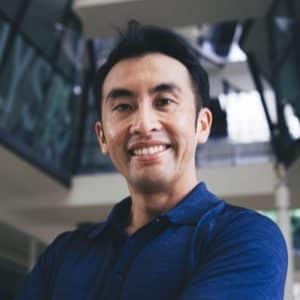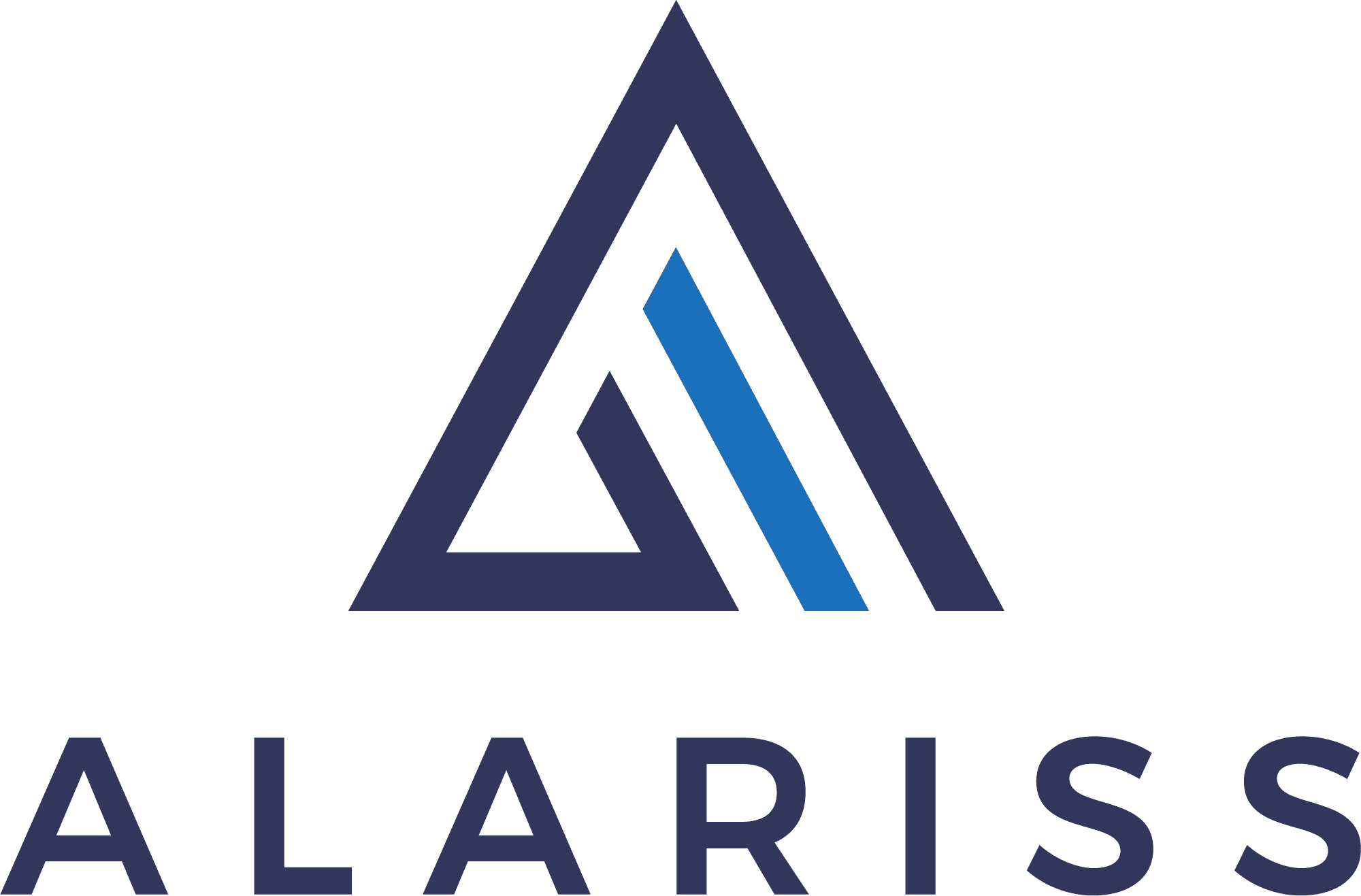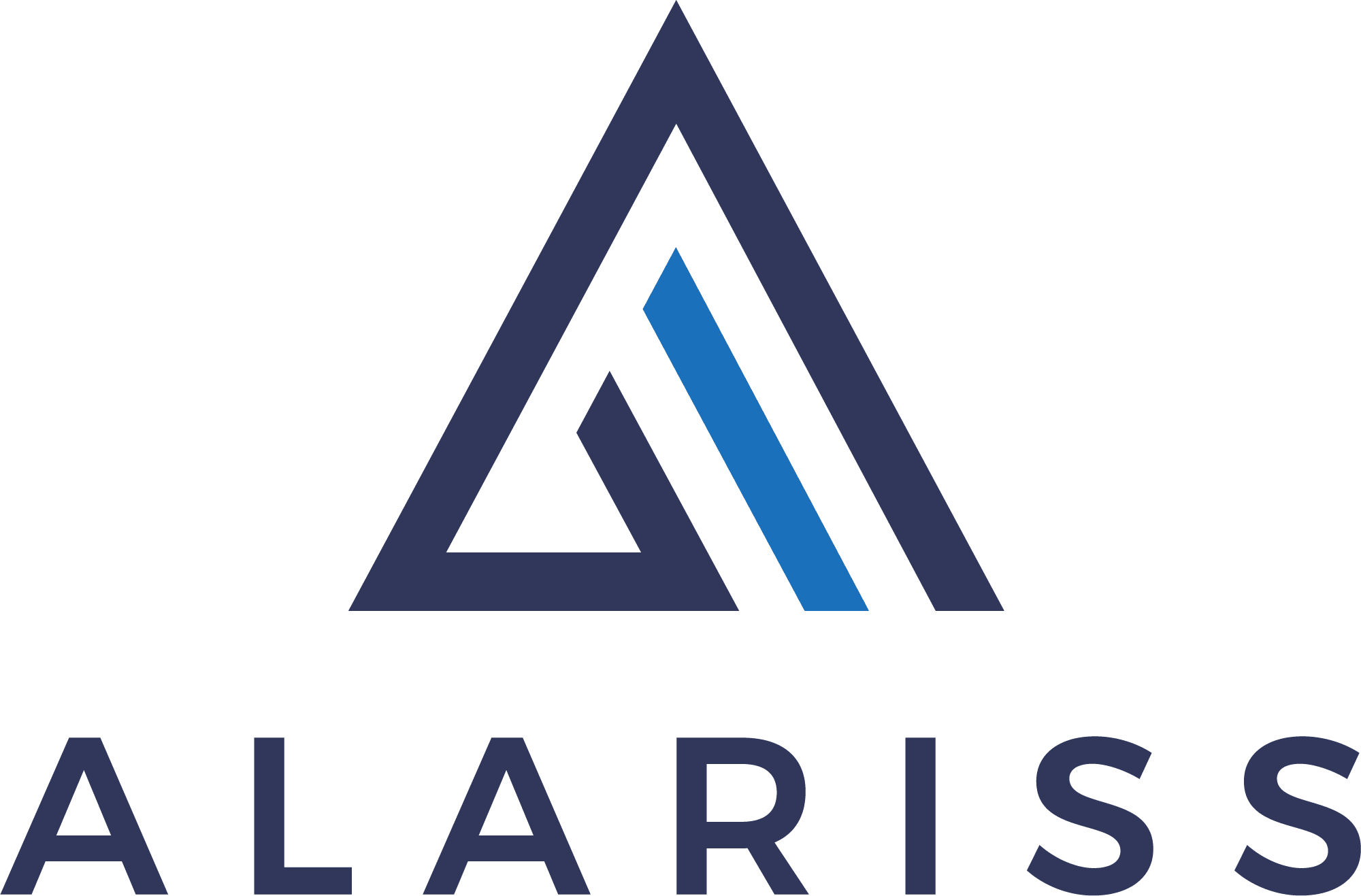Blog
From Silicon Valley to Singapore: An Entrepreneur’s Trailblazing Journey

March 10, 2022
In the fourth episode of “Alariss Classroom”, Derek Wong, the Co-founder of Moneko joins us to chat about his career in marketing and the brave transition he made from working in multi-national companies to launching his own start-up.
Good morning from Boston and good evening from Singapore. Thanks for listening to Alariss Classroom. Today we invite Derek Wong as our guest to share his journey in the marketing field. Let me read a little bit about Derek’s bio for everybody. Derek graduated from University of California Irvine with a bachelor’s of arts in Economics. After college, he worked in marketing in several big companies like Microsoft, Riot Games, and LinkedIn. He was also the founder and managing director of Luminated Career Consulting which is a pro bono career coaching that inspires and mentors college students to pursue their dream career. In January 2020, Derek moved to Singapore from Silicon Valley and joined the Antler entrepreneurship program where he co-founded Moneko, a FinTech startup that helped users save more effectively. Thank you Derek for using the time to have this podcast with us. We really appreciate this opportunity that you can join us. This is only a short bio about you, you can also add in more about yourself and let our audience know better of you.
Absolutely. Thanks for the warm welcome and for the kind words. It’s a pleasure to be here and to spend the time with your listeners. I’m excited to share more about my journey and to share some wisdom or advice, if you could call it that, with some of the listeners today.
Sure. I guess, I mean Chelsea was my good friend, and she’s the one connecting me with you and mentioned you were working in the marketing field for six years which is, for me, I graduated from University of Minnesota with a marketing diploma, which is like I always try and explore that field. So I guess my first question is going to be, you have worked in marketing for six years. Have you always wanted to do marketing?
That’s a great question, I think it’s a perfect place to start. Early on, in fourth grade, when I was in elementary school, I learned about marketing from a bring your parent to school presentation. My friend at the time, his dad worked in marketing, and I just found it so interesting. You could say that at the tender age of 10, if not 11 years old, I just had a hunch that I wanted to start my career in marketing. I loved the idea that it was a mixture of creativity, human behavior, psychology, and the ability to influence change within a large organization. Whether it’s a business, an entrepreneurial venture, a nonprofit, or beyond. So I’d say I started pretty early. I knew early on in fourth grade that I wanted to try marketing and I had plenty of opportunities through high school and university to really finetune that space within marketing that I wanted to grow my career in.
Yeah, definitely. I mean, I think I really resonate with you because when I went to high school I was hosting some of the events. So what I tried to do is like promoting the event and from that standpoint it made me realize, hm, this is going to be something that’s going to be fun like later, promote other events, or letting people know about a service or product. So I think that’s a reason why when I went to college I chose marketing as my major. Yeah, so since you’ve been working in the marketing field for six years, what do you like about working in marketing?
Certainly. Yeah, marketing is a really diverse field and there’s tons of different types of roles and career paths that you can have within it. I have been fortunate to have tried many different pieces of the puzzle, and I figured out what is my favorite part of that puzzle. So going through my university days, you know having internships in small startups, where you’re an unpaid social media intern, to learning more about the advertising industry and helping clients like Toyota develop ad campaigns. There’s so many different skill-sets and areas that you can plug in as a professional. For myself, I realized that I love that mixture of doing cool marketing campaigns that people love, that the world can see, but I also love the idea of influencing the product roadmap, of helping to decide what the company should do next. I think that was a piece that I really wanted to learn as part of my professional development. So the space that I found myself in for the past few years, actually where I started my career and eventually returned, is in product marketing management. So product marketing is a unique space where it’s a combination of product management which is a very, very popular field these days where you help build the right sort of software features and products, but also combines marketing and of course management. So for myself, I’ve been able to hone my career building different skills within marketing, product, as well as management being in this career path.
Yeah, definitely. I think when you mentioned about the advertising campaign, I think my next question for you is actually an item question. What is your favorite commercial campaign? Like recently you’ve been watching a lot of stuff, I bet, so I just wonder.
Yeah, that’s a great question. And in a funny way as someone that works in the field, I learned to have a strong distaste for ads that are poorly done. But I think, I’m just trying to jog my brain. I’ve actually been trying to cut out as many commercials as I can. I think one that’s come to mind quite recently is watching the basketball ads–excuse me, watching the NBA season that just turned back on, I was really impressed by the type of promotional campaigns. That they’ve been able to combine both, hey the basketball game is back, but also combining it with social justice and the Black Lives Matter movement. I am very, very impressed by how the organization was able to rally behind that message and create really powerful, creative–whether it’s having basketball players, both black, white, and every ethnicity in between, people in the industry, fans, all unite under this message to show that black lives really do matter. And I think having watched that commercial even this morning, I was very, very humbled and very touched by that ad and it’s been a while since I’ve had such resonance with a campaign.
Yeah, definitely. We’ve been seeing a lot of good commercials or even like a charity commercial recently about this movement. It’s really amazing I would say. So yeah, I guess my next question for you is, as you know a little bit of background about me, I graduated from the marketing major from the University of Minnesota. So for you, as a co-founder for the company, people who are interested in this field or studying in marketing at a university, do you have any advice on how to start a career in marketing?
Sure, yeah. Yeah, that’s a big question with a lot of pieces. You know, how do you start a career in marketing? And I would first start with the why, really understanding why do you want to do marketing? Is it because you like creativity? Is it because you like social media? Is it because you love the idea of helping to grow a brand? You love the idea of brands? There’s so many different reasons why people like the idea of marketing, so I’d first hone in on why, right? And then identifying what particular field within marketing that you’re drawn to. Is it advertising? Is it email marketing? Is it research? Marketing research is a really huge, important field. Or is it data science? That more analytical side of marketing that has so much measurement, analytics side. I met actually a handful of people from the University of Minnesota in my career that I became very close business partners with at work because marketing works very closely with data science. And as the industry evolves it’s important to think about not just, I like social media, Instagram ads, and Instagram stories today, that’s my career path, but also think about where do you see yourself long term.
Yeah, definitely.
And the next piece of advice within that would be, figure out what you find easy that other people find hard. I think that’s a really, really powerful question that is seldom asked, and it’s a piece of wisdom that I got from another podcast that I listen to, the Tim Feriss podcast. And it’s just a really powerful question to help you refine, hey you might like a particular thing but if you actually like something but it’s very hard–for example, I love beautiful design, but I’m absolutely terrible at design. So for me I knew that I can have an appreciation for design and work with designers, but as long as I know that my job is not to draw a particular illustration or to make the actual ad. So I think that’s another element that needs to be considered as you think about a career in marketing. And the last piece of advice is a three-part piece of advice that is more actionable for our listeners and this is something that I asked one of the professors at my university before I graduated. And it was a really strange experience because I kind of sent a cold email to basically the dean’s professor, so one of the more senior professors at the business school, and he was an MBA professor. So as an undergrad student, to be able to get some time with a very senior academic leader was quite a privilege. So I came in really prepared, really polished, I think I tucked my shirt in and was extra early to try and impress this professor and I asked him that same question. What can I do to very, very much accelerate my career in the marketing space? And he was an Indian gentleman and he had a very wise and thoughtful, methodical way of answering questions. He would pause and almost just gaze off into the distance and think. Almost in the way of how Yoda in the Star Wars series wisely contemplates his answer and then cryptically unpacks it. But I still remember, he said it’s in three different ways. You have to do it in three steps. First you have to read, you have to read first. You have to understand. You have to understand the world of marketing. You have to understand what is the basic theories, right? There’s different types of reading, right? He recommended both popular press books, the books that you’ll see at bookstores or on Amazon Best Sellers, right? This also includes magazines, right? Hey what is the – Fast Company is a great magazine, it’s filling your brain with different types of marketing materials as well as academic pieces, right? Is it Harvard Business Journal, is it The Economist, is it academic journals like marketing research journal, that are almost analysis and studies. So you need to build this foundation of understanding marketing and just the rules of physics, right? So if you take science as a background it’s like, you can’t be a great scientist unless you understand how gravity works, how chemistry works, so this is building that foundation. The next step therein is to think. Think about marketing. The next time you’re at a coffee shop, really try and dissect and understand what is actually going on around you. This Starbucks cup that they give you that has this green iconography, right? As you leave the store, everyone knows that that cup is from Starbucks. It is in itself a statement. Understand why they do it the way they do. So that’s a really obvious example but perhaps take a more business case example. Hey, you’re at a local coffee shop and they’re not nearly as busy or popular as Starbucks, can you start thinking about why that is? What is the difference between their brand? What is the difference in the idea that both of these companies embody in your mind? What is the difference of the space? Right? So it’s almost being able to dissect the world around you from a marketing lens. Who is this for? Why was it designed this way? How do people think about it? How would you change it? How would you increase the number of people here? If you wanted to make a coffee shop a more popular study spot for students like yourself, how would you go about doing that?
And the last piece to the puzzle is doing, doing the marketing itself. You mentioned publicizing events on campus, whether it’s a student panel or a fraternity party, right? There’s so many different opportunities for you to do the actual marketing, to apply yourself, to make mistakes on somebody else’s budget, because that’s what experience is, after all. It’s learning from the mistakes you make along the way, right? So the last piece again is combining all the things that you’ve learned, all the things that you’ve thought about, and applying it. Because marketing compared to many, many different fields, you can never really learn it in a classroom. You just have to do it, and that’s I think the most important part, is gathering different experiences whether it’s in internships, starting your own freelancing business, or just offering help to folks that don’t come from a business background. Perhaps it’s someone from a science major who is trying to publicize, make a website, and they have no idea how to do that. So there’s plenty of opportunities to get applied experience in the marketing world. I think those pieces together will help you break into the industry.
Thank you. I really love this answer because it definitely made me think about those past four years for my undergrad, the academic life. Because being a marketing major student, like we’re doing the case study all the time but you know the case study is always about big companies like Disney Land or some of the others, like even Starbucks you mentioned, like we did a case study about it. But actually when we dive into our real life, how many other businesses actually also need to have a fine marketing? Like how can we help them to achieve the success point for them? It’s also something we all should be thinking about.
Absolutely.
Yeah. So actually, the next question for you is going to be what are some of the criteria you are looking for when you’re hiring a marketing intern or a full time employee for Moneko?
Yeah, that’s a very suitable question for right now as our company is very early stage. We recently closed a pre-seed round a few months ago, we had an opportunity to bring on a really wonderful summer intern and he was my partner-in-crime that I spoke to every single day this past summer. It was a tremendous experience and with the past few days – so the internship just wrapped up for our summer intern and I was just reflecting on, wow there was quite a few candidates that applied, and why did I end up choosing this person? That’s when you start thinking about growing our team and hiring more designers and engineers. It’s amazing being able to be in this position to actually hire people to join your company. And both my co-founder and I–first, one principle is having a sense of humor. I think that’s actually a very much overlooked part of your identity. At the end of the day, you’re hiring a human being. You’re not just hiring a robot that can analyze numbers and provide outputs, you’re going to be working with someone for long hours, right? Normally, it would be in the same office, but in these questionable times, we’ll remove that assumption. Another aspect that’s a little more, I guess, tangible, is are they accountable? Right? Can you trust this person to do the job? Because at the end of the day, the most important currency is trust. Right? If you give this person a certain task, can you trust them to do it and to do it well without your guidance along the way? That if I don’t bug them for an hour or 24 hours, do I expect them to move this project along without a lot of supervision? Right, so I think that level of trust is super duper important. And then the last piece is do they have a strong point of view? Because I think in the business world, we like to say strong opinions gently held. I think that’s something that businesses can benefit tremendously, is from people that have perspectives, they have opinions, and they’re willing to share those opinions. And I think that’s an element of my own career that I thought was something that made me stand out, especially in my first few roles, was I was always open to speak my mind because I genuinely really loved the video game industry and I had a lot of personal opinions about almost everything. Making sure that you can speak up. I think that’s something that is an overlooked part of the recruiting process or from a candidacy perspective is students saying, oh yeah I have such good grades, I have this module that I–I’ve taken this particular class, I’ve done one internship, why did I not get this role when I interviewed? And people don’t do enough critical analysis of communication styles and public speaking. If you’re not easily understood, that’s a significant barrier for both yourself as well as your manager and everyone that works with you. I think it’s a really important, really, really important priority to always improve your communication style and to ask feedback from people. You know, this doesn’t mean, hey boss, what can I do better? Because you’re not going to get good feedback, right? I think it’s being able to ask close friends, hey, what do you think I can do better? Right? Do I say any words – we call them crutch words – Do I say any um, mm, like, all the time? Right? Oh yeah, you actually do, you say mmkay all the time or you always end your answers with a lilt, like okay? And then I’m going to talk like this, right? Those are all things that diminish trust or make you a less effective communicator. So I guess that leads to my very last point is being able to ask and take feedback because at the end of the day you’re trying to improve as a professional, you improve by feedback, right? Your parents give you feedback. Sometimes if you’re lucky, your coach or your teacher might give you feedback. But most of the time, you get grades and grades are the only sort of, almost like a binary type of feedback. It’s either you get it right or you get it wrong. If you get a certain number of things right, then you get a certain grade. That’s it. But feedback, being able to find feedback both from yourself and from others. So that’s one thing I really loved about my intern this summer is whenever we would be contemplating a different creative tactic or a campaign or the writing for a certain ad, he would share the ad with some of his friends just to get a pulse check, right? Seeking out feedback, right? Or asking hey, I made this first pass at a video, what do you think? Right? And be open to essentially get torn down, right? And then you can build yourself back up and improve as a professional and as a marketer.
Yeah, definitely. Actually during the summer, some of my other friends were doing marketing internships during the whole summer, and I heard a lot of like, they are kind of like having a little bit superego when they step into the field because the past four years they’ve been in the marketing major, they’re learning a lot of the theories of the marketing, they feel like, I am from the book to real life. So whatever I am saying, that’s from textbook, that’s going to be right. However, the reality of life is marketing really depends on where you’re marketing and also depends on what product are you marketing for. Which is like, it’s always changing or different modeling, it’s always different. So when they hear some negative feedback they always feel so frustrated about it. And when they come to me asking me about my opinion I always tell them like, of course you like to hear when people say, yeah you did a good job, this project looks amazing, and you’re going to be happy with it. But however, thinking about it, if you just keep listening to those positive comments, what’s going to happen? Basically you’re just going to stop there, you won’t just like improve yourself anymore. Sometimes some of the feedback might be a little hurtful but that’s how you grow. I definitely think like that way.
Mm-hmm. Absolutely right. Very, very true.
So when you switch to marketing in your own startup, how is that different from your marketing in a large company? This is my personal curious question, I guess.
Mm-hmm, yeah. I mean to certain extents almost what’s even the same? It’s like a completely different world. I’ve been really privileged and really thankful to have worked at very large and very loved consumer brands. I began my career at Xbox during a year of the launch of a new console where when your product’s about to launch, a lot of people camp out for two to three days outside just waiting for your product because they love your product, they love your brand. Then my second job at Riot Games, I worked on League of Legends, which is one of the world’s most popular video games. The moment you post anything, any sort of campaign asset, you immediately get hundreds of thousands of likes on Facebook. It’s like, wow. You know? You almost get jaded or desensitized by how popular you are. But your biggest problem isn’t, oh I hope this performs well, it’s I hope people don’t leak it because we know as soon as somebody sees it, it’s going to go viral. It’s a completely different set of problems than what you’re trying to solve for in a startup environment. The budgets are super tiny in a startup, you have to be mindful about every cent that you’re spending, you have to think about every day, am I spending my time in a way that helps advance this business? Am I getting the most bang for my buck for every hour that I spend doing this? Or should I be doing that? You don’t have the privilege of established processes. If you’re trying to do a blog post or you’re trying to reach out to influencers, you have to figure out all of that, document it, and find ways to speed it up in the future. Versus in a large company environment, there’s your digital email team, you have your analytics team, you have your influencer manager team, and all you do is spit up a few emails, maybe do a kickoff meeting if people aren’t checking their emails, and you basically delegate. A function of my role and the large company is there’s a process in place, people have specific jobs and my job within this larger schema is to ensure that everything moves smoothly, on time, and that other people do not dedicate too much of their time towards me because they have other people to help. The goal is to get the job done within a certain period of time. To oversimplify, the big difference between the marketing experience at a large company and a small startup is process. If the process doesn’t exist, both from a people process or a functional process at a startup, so you have to do all of it or design it every time, versus at a large company, that process is there.
Yeah, definitely. So as you mentioned, you worked for Microsoft, LinkedIn, and even like Riot Games, so I guess I want you to share a little bit of journey from your emotional journey and your personal life journey. How did you decide to quit your job and start your own business? Like I know a lot of people I’ve been talking to, they are currently working for Microsoft or Facebook, you know all of them, they are actually at their sweet spot right now and they’re having the amazing benefit and everything so they’re just like, no I’m not going to quit my job, I’m just going to stay here until the day they fire me, you know? So I just wonder, how did you decide to quit your job and start your own business?
Yeah, it’s a great question, and this is something that my friends ask me quite often or when I catch up with friends that were surprised that I made such a big shift, you can say taking a career risk, you can say just taking a giant pay cut, all these things are accurate assessments. But fundamentally, it comes down to what sort of human being do you want to be on this world? Right? I think that’s the biggest fundamental question beyond what is your job title and what company do you want to work at. For myself, having worked at good, I can say even great companies with amazing benefits, extremely competitive compensation, life was good. Life was a little too good, it was a little too easy. Not in a sense where everything is groovy and perfect, you know I had some very, very disagreeable managers that made me want to quit, right? So that’s part of it. There’s certain things along the way that made you realize, hey I’m not getting what I want out of my life right now. For myself I was a little bit – I felt a little bit stuck. I was back in my hometown, I grew up in Silicon Valley, which by itself is kind of a cool thing. I moved back home to spend time with my parents for a year. It meant that I was 10 minutes away from the office, but it also meant that I had to pay rent. So it’s a great thing where it’s, oh my gosh, you’re saving all this money, LinkedIn is famous for their free food and their great gyms and all their benefits. But the thing was I wasn’t doing work that was satisfying or fulfilling. I was working in the data trust privacy space, which is a very important field, but for myself I knew that that wasn’t the reason I went to LinkedIn, I went to LinkedIn to work on the careers team to help people get the right opportunities and get jobs at scale. That’s why I left the video game industry, an industry that I have huge personal love and passion for. Not that things don’t go perfectly to plan, but for myself, I told myself that I wanted to move to Asia for a very long time. I wanted to work at Microsoft Singapore, Riot Hong Kong, LinkedIn in Singapore for many, many years, but every time I don’t think I was willing to give up the fancy paycheck. I was like, well you know I could move to Asia but things are pretty good in America, things are pretty good at the HQ office, right? So for me I started to realize the reason I had such a–the reason I had to take decisive action was I saw all my friends around me were starting to get settled down. It’s like, oh they’re in these good jobs, they found a significant other, they’re getting ready to think about buying a house or starting a family. And for me, I realized that many of those things are aspects of my life that I want, but I also knew that this opportunity to move overseas and to do a startup, which is something I wanted to do since high school, these have been on my mind for so long and I felt they were almost like, I have to do these before my life slows down. Because being able to basically move across the world to another country, being able to be a startup founder and not have stable income, those are big risks in and of themselves. But they’re magnified exponentially when you have dependents, when you have family, when you have parents that need medical help, when you have other deep responsibilities. And for myself, I count myself as very privileged that my parents are doing well, I have a brother and sister who are very close-by to my parents, so it’s almost like, hey this is perhaps the only window of my life where I can make decisions, the right decision for myself without a lot of long-lasting consequences. That I was doing these risks responsibly, that I was able to say, you know what? Because I’ve lived at home this past year, because I’ve been really sappy with my spending and my investments over the past few years, I can live off of like a much smaller salary and do a startup without significant risk. And it’s very much a choice, right? Like I was considering getting a Tesla or going to business school or buying a house, and I soon realized, wow, these are all massive, massive purchases. Right? A house in the Bay Area is a million dollars over the next thirty years, an MBA, a master’s degree is at least $100-150,000 and two years of your life. For myself, I also asked the question, what would I want to do with an MBA? Hm, I’d probably want to do a startup or do some sort of technology job somewhere in Asia. And that’s when I realized, I can do these things that I really want because I knew what I wanted to do and why, so why would I take the longer path when I can just make the decisive move now? So it was a pretty quick decision. I left my last role in August 2019, my original plan was to travel for a few months and go right back to the Bay Area, work at a startup instead of working at these really big companies, trying to get a little different experience and more responsibility. It was during this time, I called it my gap quarter when I was traveling across Asia, I realized this is actually where I want to be. I think the market is growing a lot faster, there’s tons of opportunities here, and as a Chinese-American, it’s fascinating to be able to reconcile myself within my culture and to be able to see the world for what it is.
Yeah, definitely. I really admire what you did just because like I see a lot of people, like what I mentioned, they had a great job, they just don’t want to challenge themselves anymore, and for me I guess my personality is like, keep challenging myself, that’s the reason why when I was 18 years old, I moved to Minnesota by myself just because for college and later on figure out step-by-step and keep challenging myself. So yeah, I know that you always had some other side gig like pro bono consulting for the students and creating your own podcast, you mentioned that earlier, could you share more on those? Like what triggered those initiatives, and what do you think are some advantages of having those side gigs?
Yeah, yeah. That’s a lovely topic to dive deeper into. For myself, I think it’s perhaps because I’m the middle child, I always believe in this sense of equilibrium or riding the middle path. The middle path does not mean the easy path, it means you balance a number of things appropriately. So you have your career, but I soon realized if you only have your career, you’re not a very interesting person. So for myself I started, again, the same time that I was thinking about what do I want to be as a college student, preparing for my interviews. You do these interview preparation questions like, what are you interested in? What are you passionate about? What sort of life do you want to have? And then the deeper cutting questions like who is going to give your eulogy when you die and what are they going to say? Right? So these like deep, deep questions really made me think, what sort of life do I want to have? What do I care about? So at every stage of my life I’ve always done at least one type of volunteer work because that’s something that I care deeply about, I always believe in maintaining a certain level of fitness, right? So working out at the gym is one, but then one other physical related hobby as well. And then one last interest group, so some sort of community building. Whether it’s my own community or taking part of another community. So through the years it’s been a pleasure to learn salsa, become a bowhunter, or do a podcast, or start the Asian employee group at LinkedIn. There’s just always these different avenues within your life that I find a lot of meaning in, because at the end of the day your job is “just a job.” It is a very important thing, it is a big sense of identity, but it’s not your entire life. And that’s when I realized, hey in order to live a more fulfilling life, I want to fill it with enriching experiences that give me mastery of a certain skill, that help me exercise and keep both my mind and my body sharp, and to be able to pursue things that I care about. Whether it’s Asian-American rights in America, or helping people achieve their career goals, these are all elements that I try to balance within my life.
Yeah, I guess my last question for you is actually not really related with our topic today. So let’s say if you don’t do marketing anymore, if you’re no longer a podcast host anymore, what is your most idealistic lifestyle or job for you? Let’s say not marketing, not podcast host.
Yeah, there’s a few. I’ll give you three alternate life – I’ll call them life odysseys, like in the book Designing Your Life–I forgot the name of the author, I know it starts with a B. It is–Bill Burnett. Yeah, Bill Burnett and that book, it’s super duper wonderful. They challenge you with these thought exercises of, what would you imagine your other dream careers to be? So one of them would be, I’ve always loved teaching, people say that I have a good voice for teaching. I would love to be an associate professor, or a lecturer at a university, or be a traveling lecturer, that would be one life path that I think would be full of meaning and be able to inspire and shape the lives of the next generation. So that’s one.
Yeah.
Another one would be creating, it’s almost like a concept type of coffee shop. I love coffee, I’ve dabbled in taking too many pour-over classes and such, but I think it would be really cool to make it sort of a community space that is both a place to get really good coffee, but also a place to give and get help. A place for mentorship. That’s something that I think would be incredible. And the last piece is a little more kind of trivial and out there, it’s recently I’ve really contemplated that, why are we doing what we’re doing? Why are we doing the startup? Why do you work so hard? What sort of life, what’s the end game? Right? And for me, part of me is like, oh you don’t need to necessarily have a multimillion-dollar penthouse apartment in the city, a condo in the city, nor a huge mansion in the countryside, there could be a simpler equation. Perhaps it’s you move to, say, rural Japan and have a chicken and pork katsu restaurant. You just have a little farm and you grow all your own vegetables, you have a few livestock, and then you have a whole bunch of shiba inus because I absolutely love shiba inus, and you make it like a dog cafe but you have really delicious pork katsu. So that’s like a random, if I didn’t do what I’m doing right now or maybe that’s my retirement plan. So I think I’ve visualized it very clearly in my own mind.
Yeah, I really like your three future career paths, it all sounds really fun and I’m even more looking forward to the last one, the shiba cafe and also like, oh my God, this is something I’ve been thinking for myself before too. Like I’m only in my middle 20s, what I want to do for my future. And you know, growing up in China in a traditional family home, people always keep telling you, you’re in your middle 20-something, you need to start thinking about settling down. However, I think I’m not even take off yet, how can I just settle down? That’s a question I’ve been asking myself. So yeah, definitely. I mean all those answers that you’ve given to me is really inspiring and truly a lot of answers is like a mentor-style answer, I really appreciate it. And I really appreciate your time for today.
Of course, yeah. Thanks for giving me the time and a chance to share some of my thoughts. It’s been a pleasure speaking with you and I’m excited to share more in the future.
Yeah, definitely. Thank you, Derek, and let’s touch base soon. Bye.
Yeah. Take care, bye-bye.





